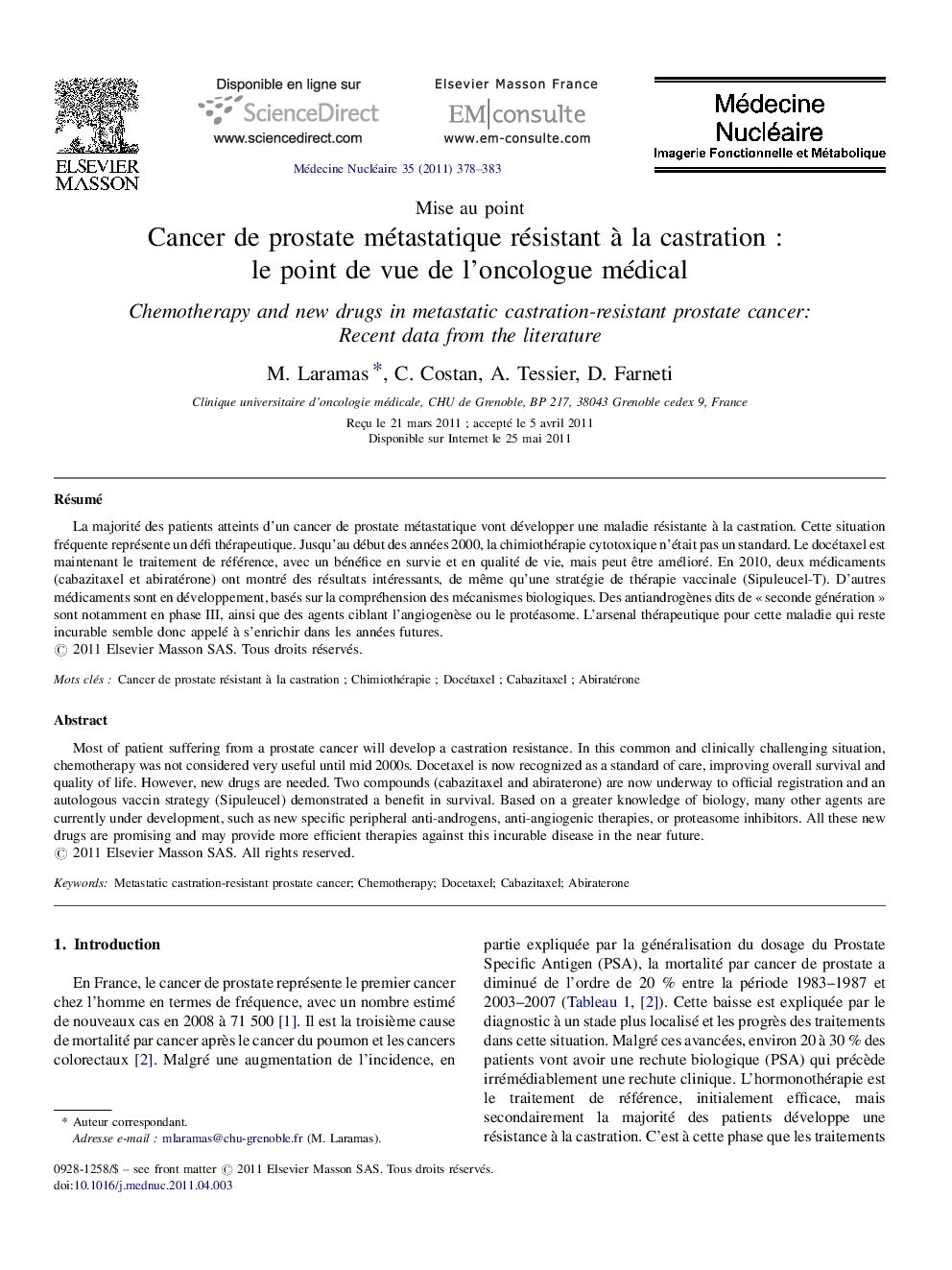| Article ID | Journal | Published Year | Pages | File Type |
|---|---|---|---|---|
| 4244248 | Médecine Nucléaire | 2011 | 6 Pages |
RésuméLa majorité des patients atteints d’un cancer de prostate métastatique vont développer une maladie résistante à la castration. Cette situation fréquente représente un défi thérapeutique. Jusqu’au début des années 2000, la chimiothérapie cytotoxique n’était pas un standard. Le docétaxel est maintenant le traitement de référence, avec un bénéfice en survie et en qualité de vie, mais peut être amélioré. En 2010, deux médicaments (cabazitaxel et abiratérone) ont montré des résultats intéressants, de même qu’une stratégie de thérapie vaccinale (Sipuleucel-T). D’autres médicaments sont en développement, basés sur la compréhension des mécanismes biologiques. Des antiandrogènes dits de « seconde génération » sont notamment en phase III, ainsi que des agents ciblant l’angiogenèse ou le protéasome. L’arsenal thérapeutique pour cette maladie qui reste incurable semble donc appelé à s’enrichir dans les années futures.
Most of patient suffering from a prostate cancer will develop a castration resistance. In this common and clinically challenging situation, chemotherapy was not considered very useful until mid 2000s. Docetaxel is now recognized as a standard of care, improving overall survival and quality of life. However, new drugs are needed. Two compounds (cabazitaxel and abiraterone) are now underway to official registration and an autologous vaccin strategy (Sipuleucel) demonstrated a benefit in survival. Based on a greater knowledge of biology, many other agents are currently under development, such as new specific peripheral anti-androgens, anti-angiogenic therapies, or proteasome inhibitors. All these new drugs are promising and may provide more efficient therapies against this incurable disease in the near future.
